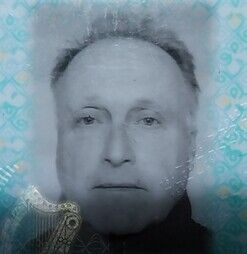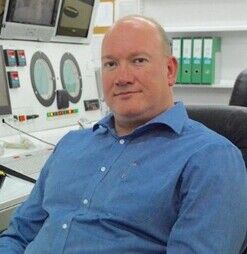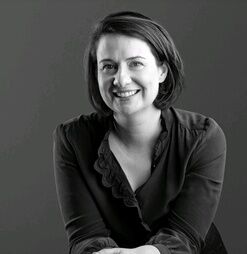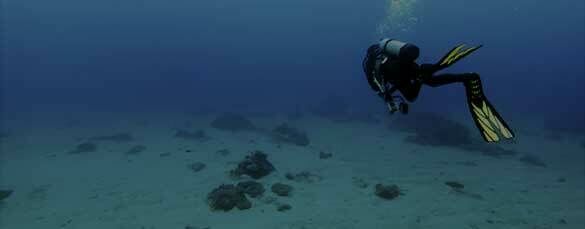The UK Diving Medical Committee meet formally around 4 times a year. Their work is done on a voluntary basis. Members all have substantive mainstream medical roles, further details on these are available below.
A lot of personal time is spent by the committee writing guidelines, processing referee applications, considering appeals, undertaking research, organising conferences, liaising with other medical / interested bodies and generally promoting the area of diving medicine.
Diving medicals are undertaken by a national network of approved medical referees.
Referees will charge a fee for undertaking a medical or providing medical advice

Registered with the Irish Medical Council
Richard O’Regan is Medical Advisor to Diving Ireland the National Governing Body for Scuba Diving and Snorkelling in Ireland.
He is an active sports diver / instructor (>100 dives/year) and outdoor swimmer.
Professionally he is retired from his post but still working in it 3 days a week as a part time locum consultant medical ophthalmologist. He is an AMED with the Health and Safety Authority Ireland and an AME with the Irish Aviation Authority. He undertook a GP trainee year in New Zealand where his interest in both diving and aviation medicine began because partners in the rural practice were involved in the same.

General Medical Council Reference Number 3567571
Tristan graduated from The University of Aberdeen in 1992. His first experience of diving medicine was during an attachment to the Diving Diseases Research Centre in 1991. He was appointed as a consultant in Critical Care Medicine at Aintree University Hospital in 2001. He has worked in Diving Medicine for over 30 years and is currently the Medical Director for the North West Recompression Unit on the Wirral. He has provided medical support for several diving expeditions, including the landmark Britannic 1997 expedition, and is an active technical diver.

General Medical Council Reference Number 7070474
Dr. Sarah Zacheshigriva started diving in 2005 while studying Medicine at Edinburgh University. She combines her experience as a GP and an Occupational Physician with specialist expertise in diving medicine, having worked on expeditions from Cuba to the Solomon Islands and, of course, Scotland.
She conducts diving medicals for all recreational divers and serves as the Diving Medical Advisor for ScotSAC. Her practice includes HSE commercial diver medicals and offshore medical examinations.
Based at Scottish Medicals, she partners with organisations in Scotland, working towards creating a culture where water-based activities are accessible and safe for all.
Her favourite dives are those where she encounters wildlife – whether it’s a friendly seal at Cape Wrath or a diving puffin at the Isle of May.

General Medical Council Reference Number 3453340
Mark Turner graduated from Bristol in 1990. He joined the Royal Navy as a Medical Officer and worked at the Institute of Naval Medicine and Submarine Escape Training Tank. He also worked as a Ship’s Diving Officer and Submarine Escape Instructor. Medical Training; MRCP 1996, General Cardiology in Plymouth, Cardiff and Miami leading to PhD in 2004. Trained in congenital heart disease Great Ormand Stret Hospital and UCLH / Heart Hospital 2002-2005. Consultant Cardiologist at Bristol Heart Institute 2005-present with interest in congenital and structural intervention. HSE medical examiner.

General Medical Council Reference Number 2806569
Phil Bryson started off his diving medicine interest at Discovery Bay Hyperbaric Unit in Jamaica whilst he was working in downtown Kingston in the very early days of his medical career. He then moved to Plymouth (UK) where he worked as a volunteer at the Diving Diseases Research Centre for 6 years whilst he completed his training to be a GP. He then managed to turn his hobby into a career and carried on working at DDRC for the next 25 years being the Medical Director there for his last 11 years, prior to leaving to take up his current job at International SOS in December 2010. He has published extensively in specialist medical journals, and co-authored 2 chapters in 2 Medical books. He was the medical advisor to the SAA prior to helping set up the UKSDMC, sits on the DMAC, EDTC, and EUBS committees.

General Medical Council Reference Number 2638717
Maggie is an Occupational Health Physician, having previously been a GP, and undertakes medical appraisals for the Faculty of Occupational Medicine. She has been undertaking both sport and commercial diving medicals since the early 1990’s. She is also approved to undertake offshore medicals and has many years of experience of undertaking driving medicals and general occupational health medicals. She is a BSAC advanced diver and has been diving since 1989. On the Committee she is the Appraisal Lead and the BSAC and SAA representative. Her other interests are her pet dogs, attending Rolling Stones concerts, medieval history and she is a member of the Richard III Society (amazing he was found!).

General Medical Council Reference Number 2921743
Chris is a consultant anaesthetist with a specialist interest in diving and hyperbaric medicine.

General Medical Council Reference Number 3261215
While serving as a medical officer in the Royal Navy, Mark was appointed to the Institute of Naval Medicine in 1997 where he received training in diving and hyperbaric medicine. He left the Royal Navy in 2004 and worked as a general practitioner and occupational physician until he was employed as the medical director of the Hyperbaric Medicine Unit in Royal Hospital Haslar in 2006, continuing in the role when the unit moved to St Richard’s Hospital in Chichester in 2010. He stopped general practice in 2021, relinquished his post as medical director of the hyperbaric unit in 2022 and now works as an occupational physician providing advice for NHS and other clients including companies involved in diving and hyperbaric technologies. He is qualified as a working and a recreational diver but lately immersion seems to be more often in paperwork rather than in water.
General Medical Council Reference Number 4313649
Dr Robinson is an A&E consultant with a special interest in diving medicine.

General Medical Council Reference Number 1735709
Peter is a consultant cardiologist. He has particular research interests in cardiac problems in divers, including immersion pulmonary oedema and the roles of cardiac and pulmonary shunts in aetiology of decompression illness. He has been a medical referee since 1977. In the 1970s and 1980s he was medical officer on a number of international diving expeditions.



